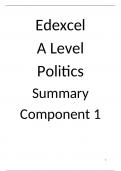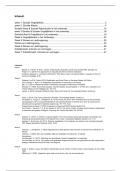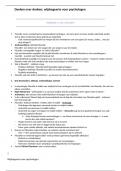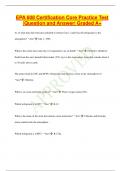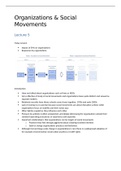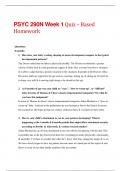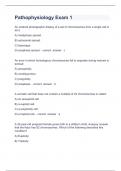Summary
Summary A LEVEL EDEXCEL POLITICS PAPER 1 UK POLITICS AND CORE POLITICAL IDEAS
- Course
- Institution
In depth notes covering all knowledge points on specification for you A Level Edexcel Paper 1 Politics Exam. Covers all topics on UK Politics (Democracy and Participation, Political Parties, Electoral Systems and Voting Behaviours and Media), as well as all 3 core political ideologies (liberalism, ...
[Show more]
